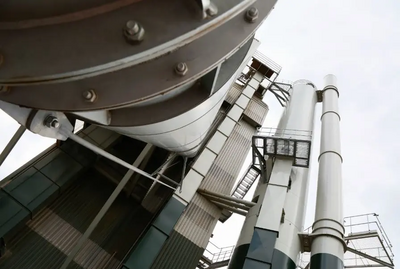Efficiency and Recycling Major Factors in Tarmac's New Harper Lane Asphalt Plant

Last year, Tarmac - who claim to be " UK's leading sustainable building materials and construction solutions company" - opened a a new, modern asphalt plant inside the M25 at Harper Lane, Hertfordshire.
The £6.6m plant replaces an older 1960s operation. It has greater capacity, is more efficient, and can manufacture a wider range of products, including lower temperature asphalts. Key points:
It is the first plant of its type in the UK that will recycle large quantities of the worn out road surface material that results when cold planing is used to prepare highways for resurfacing. The new equipment can produce mixes containing up to 55 per cent recycled content
The plant can also produce lower temperature asphalts, which can reduce the carbon footprint of road projects by 15 to 25 per cent. The site at Harper lane also has a rail connection so that essential road stone can be brought by railfreight directly into the South East.
Cyrille Ragoucy, CEO, Tarmac said: "The UK's strategic road infrastructure plays a critical role in securing the country's continuing social and economic development, and unlocking its future prosperity. Tarmac is well placed to support customers in achieving the UK's infrastructure plans by providing the solutions, expertise and innovation to help deliver projects in a smarter, more efficient and sustainable manner."
